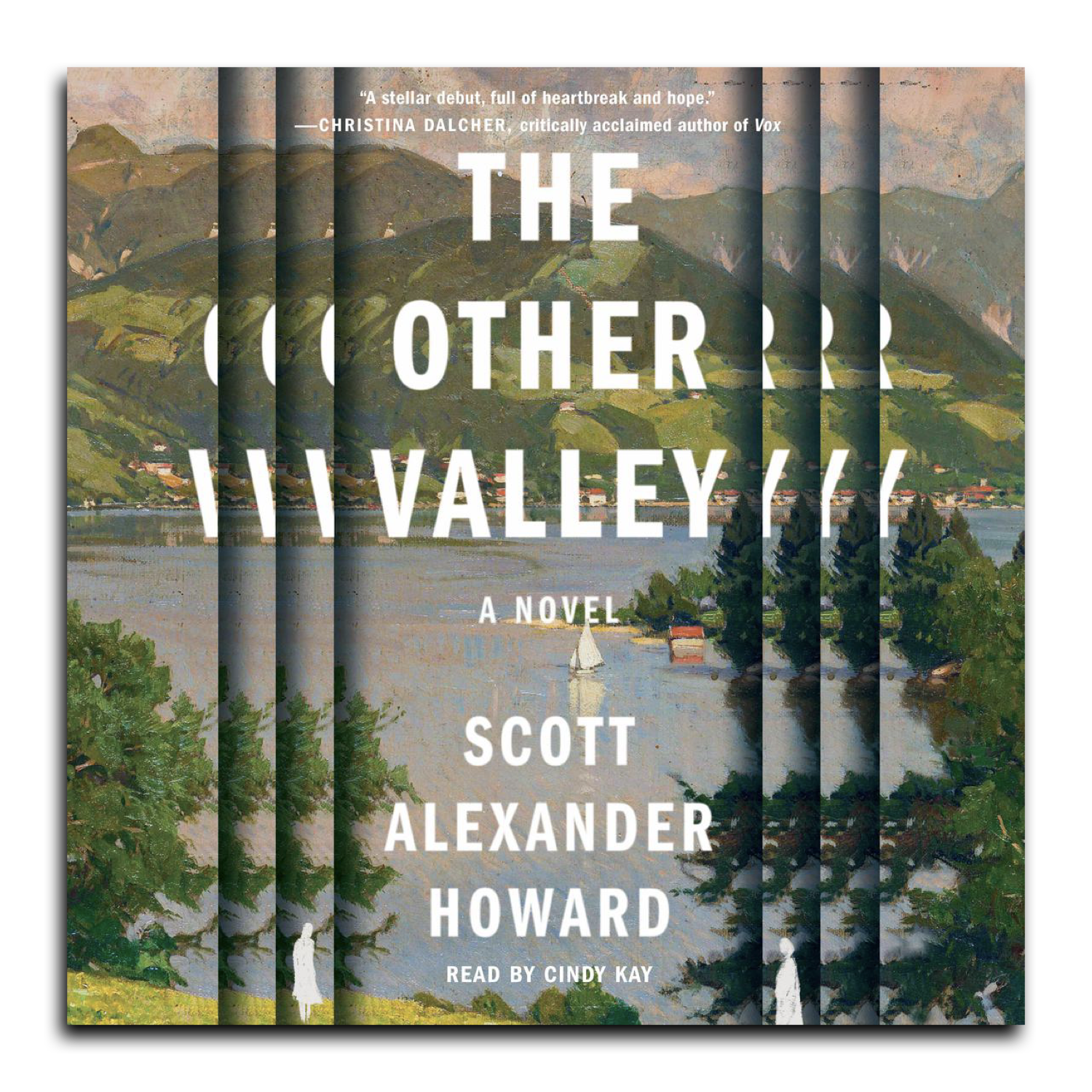The Other Valley by Scott Alexander Howard
Pulling in a hazy time-travel-esque conceit, Howard delves into a sort of fates and consequences argument via his character Odile from her vantage point of her reality's construction of valleys. In a constant spherical flux with time, the valley to the west is 20 years previous and the valley to the east is 20 years in the future.
Odile is shy, fairly awkward, but loaded with a decent amount of self-awareness but lacking in self-confidence. At sixteen, and through her mother's forceful direction, she has decided to put herself forward for a spot with the Conseil — the body that governs each valley's travel allowances, which are generally only granted on special circumstances following the death of a loved one.
After an accidental sighting of travelers in her valley whose focus on classmate Edme leads her to understand they are his parents and his death is imminent, Odile is more open to fostering a friendship with him while also revealing to those connected with the Conseil what she now knows about Edme. After the inevitable happens, we move forward 20 years (to the east) and spend an odd second act with Odile at 36. As the date of Edme's death draws near in the valley to the west, she finds herself in a spiral of choices, consequences, and a lack of control.
The Other Valley has a strong opening — the full first act was introspective, insightful, and felt like great groundwork for exploring some deeper themes within the constraints of the story's setting. The second act was a little sluggish and disconnected the reader even more from the Odile we'd come to know. But as we rounded home, Howard falls headlong into a third act that was out of sync and shifted tone more than I'd like. On its own, the third act was interesting and well executed, but it doesn't exist in a void and must answer to what came before.
I loved Odile at sixteen, when she was the most earnest version of herself, and would preferred to have had her a little closer than arm's length, especially in the next valley. What really would've served the story and main character better for me would've been if we'd gotten Odile from every valley. We glimpse her in the future valley, at 56, but we aren't in her head. And, as the time travel machinations can't be more carefully considered or the conceit would suffer, the ending suddenly making use of the foundation Howard only has set out in vague ideas sort of breaks apart ties with any intention of this being a deeper character-driven novel.
Audiobook, as narrated by Cindy Kay: Kay did a great job, and she was especially suited to the main character and the methodical setup of the valleys. I think it was largely due to Kay's performance that this stayed above a YA feel.

